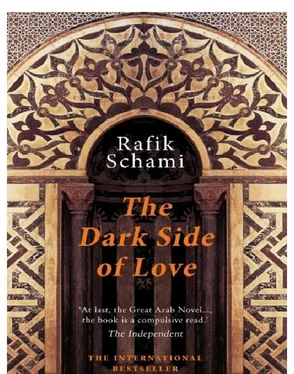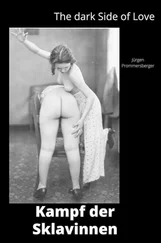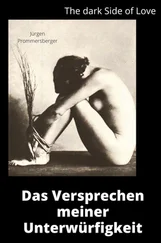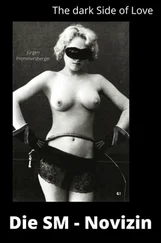“That’s odd, don’t you think? The spark must have flown past this half of the tree in a semicircle and then set the other half on fire. That’s practically a miracle,” said Matta, staring into space.
“Yes, it really is funny,” Farid agreed. His thoughts were with Rana again. Where are you? he whispered deep inside himself. I need you.

At that moment she was talking to her best friend Dunia Sabuni, because otherwise her thoughts would have choked her. She was telling Dunia about the feud between the two families, but she was disappointed by her friend’s down-to-earth approach.
“That’s all very well in a movie, but it doesn’t work in real life. The family is stronger, it will crush you both. And then I’m afraid it’s not as good as the stories of Madjnun Leila or Romeo and Juliet. You’d better steer clear of that boy and find a steady respectable man, one your parents will admire, and then they’ll leave you alone and no one can stop you warming yourself on the memory of this romance of yours,” she said, with a sudden clear peal of laughter. “But only in your thoughts,” she was quick to add. “Everything else will be your husband’s, understand?” And she laughed again, but this time with much meaning.
At that moment Rana heard Farid’s voice, and she cried almost indignantly, “But he needs me, and you can’t just run away and let someone down.”
“What poet said that? Tell me his name and I’ll show you how he let those fine sayings loose on the world, and then stayed with his wife like a good boy. No, my dear, you’re a dreamer, and it’s my thankless task to wake you up.”

Farid heard a voice inside his head, saying: I’m here with you.
“And where’s the shame that Ghassan was talking about just now?” Matta brought him back to the hilltop and the elm. “This dry half belonged to the Mushtaks anyway. The other half, the living one, belongs to the church of St. Giorgios. But never mind, the main thing is no one was hurt and no fields were damaged either.”
At these simple words, Farid himself suddenly couldn’t understand why his father had been talking about a sin. Surely not just for a chunk of rotten wood, he said to himself.
When word went around in Mala that the fire had spared St. Giorgios’s half of the tree, many people took it as a kind of final proof from heaven. It was the work of Providence that a descendant of old George Mushtak, of all people, had burned his part of the tree.
A week after the fire, Farid’s father spoke normally to his son again. At lunch he suddenly asked in a perfectly friendly tone, “Pass the water jug, would you?”
Claire had insisted that Elias must be reconciled with Farid, and then she herself would back the idea of sending the boy to the monastery, although only to ensure that he had a good education. She had agreed when she learned that the monastery of St. Sebastian was run by Jesuits. But her mind was firmly made up on one point: her son was not going to become a priest.
Encouraged by his father’s friendliness, Farid told him what he had seen on the site of the fire.
“That doesn’t mean anything. There was a strong wind, it could have blown a spark on to a dry thistle, and then the thistle started the fire that burned everything around the tree, but fire doesn’t have much chance with green wood. A rotten part is different,” replied Elias calmly.
“Saliha the dairywoman thinks one of the Shahins was behind the fire. She says they wanted to spoil our Easter,” Claire told him.
Elias dismissed the idea. “We mustn’t look for Shahins behind every silly trick. What your son and his friends did was …” Elias hesitated as she cast him a warning glance, “… was a stupid, childish prank,” he finished, toning down what he had been about to say.
This conversation didn’t help matters. Apparently his father had had the monastery plan in his head for a long time, and was just waiting for an opportunity to carry it out. And when the fire burned the elm tree, that opportunity seemed, in a strange way, to have fallen right into his hands.
Women are like elm trees, beating them does no good.

DAMASCUS, MALA, 1907 — 1920
16. Sarka’s Laughter
At noon on a clear, cold spring day, two strangers came riding down the dusty road to Mala in great haste. Even before they reached the mill on the way into the village, most of the villagers could see that the couple needed help.
The riders stopped outside the church of St. Giorgios. The barber came out of his shop and offered them fresh water.
“What’s the name of this church?” asked the elder of the two.
“The church of St. Giorgios,” said a young shepherd who happened to be in the square outside it.
The barber thought the stranger on his fine white mount must be about fifty. A woman dressed in man’s clothing was sitting on the vigorous black horse. She had blue eyes, so blue that you couldn’t look at them for long without smiling in confusion. She was very young, and the villagers took her for the man’s daughter.
He asked to see the village elder. There was no pleading note in his voice. The man he wanted, Mobate, lived in the big house opposite the mill on the way into Mala. For generations, village elders had been drawn from the Mobate clan. They were good at dealing with friend and foe alike, and had shrewdly found out how to settle quarrels between the other clans and avert the despotism of the Ottoman authorities while always staying on top themselves.
Old Daud Mobate had died a year before. A week later, the most powerful men in the village elected his forty-year-old son Habib to succeed him. He was even wilier and a smoother operator than his father, who had been jokingly nicknamed “The Eel” in his lifetime.
At that time, as prescribed by the Arab law of hospitality, a stranger could stay in the village as the elder’s guest for three days without a word to explain why he was on the road.
“George Mushtak,” replied Mobate’s guest when an old farmer civilly asked his name. “And this is my wife Sarka,” he added. The woman laughed, a clear sound, and laid her head against her husband’s arm. He was sitting beside her on the rug, like everyone else present. Her new name amused her. Every time they met anyone her lover invented two new names, one for himself and one for her. But she particularly liked the sound of Sarka, the blue woman .
Jusuf Shahin, the richest man in the village, cast a disapproving glance at the woman. He thought her laughter unseemly. Later he used to say he had known at that moment that the devil was in her.
On the other hand, he liked the man. He seemed mature and courageous, and said little, but what he did say came swift as an arrow from his mouth and hit its mark.
George Mushtak told them straight out that he had fled here because of the woman at his side. He and she were Christians, he said, but a rich Muslim farmer was determined to marry Sarka by force. He, Mushtak, had chosen to come to Mala because even as a child he had heard of the chivalry and hospitality of the village.
Mobate sat up and took notice. He knew that his grandfather had once found himself in considerable difficulties when he granted the protection of the village to a fugitive. Soon after that, Mala had been surrounded. Its attackers wanted the villagers to surrender the man they were after. Their leader hated him so much that he didn’t even respect the sacred Arab custom which obliges a host to deliver himself up to death sooner than his guest.
Читать дальше















